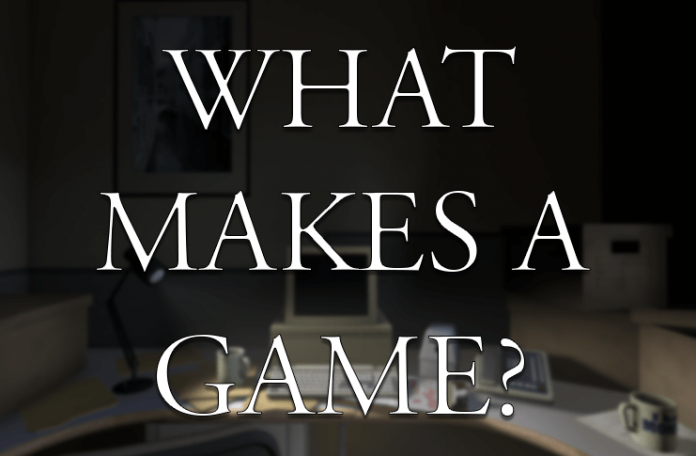From the beginning, the concept of gaming has always been about the direct interaction between game and gamer. However, with the creation of point-and-click games, the previous concepts of what makes a game were abolished and a new concept was born. What you do in these games is pretty much self-explanatory: you see things on the screen and you click them. Some say curiosity killed the cat… I say kids kill their curiosity by touching things, be it with their hands, a stick, or a computer mouse. But here’s my question: can the simple act of pointing and clicking be considered gameplay? Think about it, sure you aren’t fighting against horde upon horde of enemies, you can’t punch, you can’t jump, you can’t even move but the act of clicking is a way of interaction. As long as there is some kind of input on the player’s behalf that directly interacts with the game, it counts.

Whereas action games focus mostly on combat, other genres such as Visual Novels focus on the story. The biggest difference between them, however, lies within their core elements. Many people discard this type of media as less than a game but more like a book, but when you think about it doesn’t the concept of repeatedly pressing the left mouse button remind you of the amount of time you spent pressing “X” or “A” when playing on a console? Isn’t pressing buttons the main element of gaming? If there weren’t any type of physical input on your part could you even say that you were playing a game? Yes, yes, and no.

This brings us to a few years ago when two games came out that shook the concept of gaming as we knew it (sarcasm). “The Stanley Parable” and “Dear Esther” are still described to this day as “experiences” rather than “games”. This happened, probably, due to the nature of their content. It is true that neither one of them could be considered a “game” in the traditional sense of the word, but does that mean that they’re not games? “Stanley Parable” is all about making you, as the player, feel claustrophobic. You’re stuck in your office building following pre-determined paths, and no matter what you do the narrator knows everything that will happen. You can’t simply escape from him nor the game… Unless you quit. “Dear Esther” is a tad bit different. The story is a bit mundane and it’s told out of order. However, when you start the game there’s one thing that immediately pops up. You will see a flashing light on the horizon and you have to work your way towards it. Putting aside the obvious similarities and differences between them, do these “experiences” have anything at all in common with normal games? Yes, you can move and interact with the world that surrounds you. Let’s try an experiment. Boot up both games and don’t move nor click anything.
Here we may not have control over the story or on how anything unfolds. But we do have control over our movement, the most essential element of a game.

————————-
So, what is a game? Following our previous train of thought, it would be right to assume it is a form of media that comes to life through the interaction between itself and a subject (player). But I think the TRUE definition depends on who you are and on how you perceive gaming as a whole. The same way some of us consider games as just another form of entertainment, others think of them as a way to escape reality. Just like some prefer cartoonish graphics while others prefer realistic. Personally, I use games as escapism. And because of that, I end up playing a huge variety of games which allows me to not only keep an open mind but also to formulate non-biased opinions on various topics. Could I spend hours trying to completely dissect the concept of gaming? Yes. However, that’s not who I am. Video-games as a form of media have the advantage of not being as limited as TV shows, cartoons, or even sitcoms which allows for a deeper exploration of certain aspects of narrative or even gameplay in some cases.
Do I know enough about games to criticize them?
Probably not.
Have I ever created a game?
No, nor do I wish to.
Have I ever 100% a game?
I can count on one hand the number of times I have, but does it really matter in a world where “professionals” in the industry give games undeserved scores either because of their personal biases or because they have “too much water”? I’m no “Completionist”, but I don’t need bragging rights to prove my worth as a gamer. I’m happy enough to be able to play a game and not having to worry about achievements or anything like that. If you like that kind of stuff more power to you. Keep up the good work. However, as for me, I’m just going to sit on my butt for a few hours and enjoy my evening.






